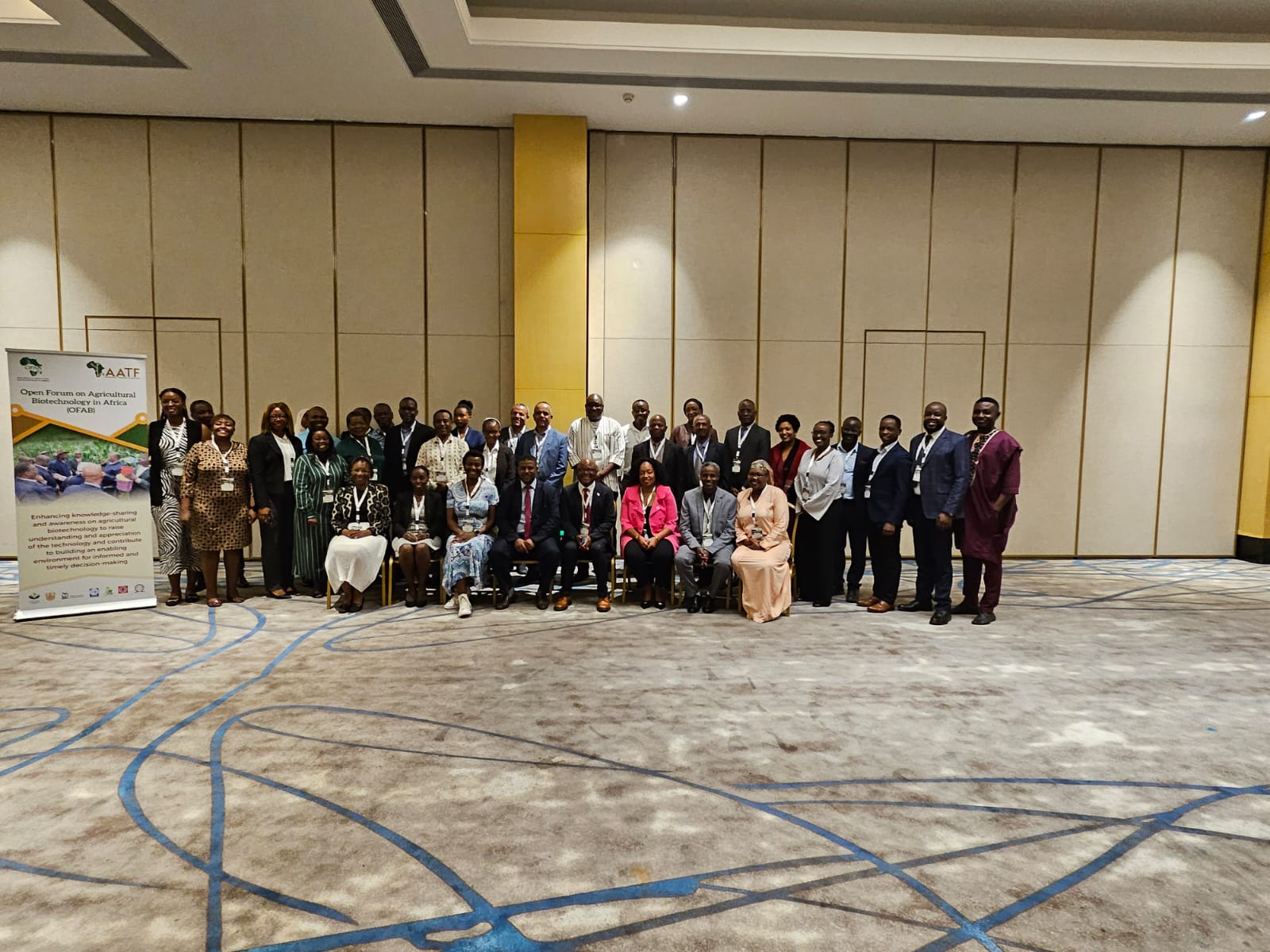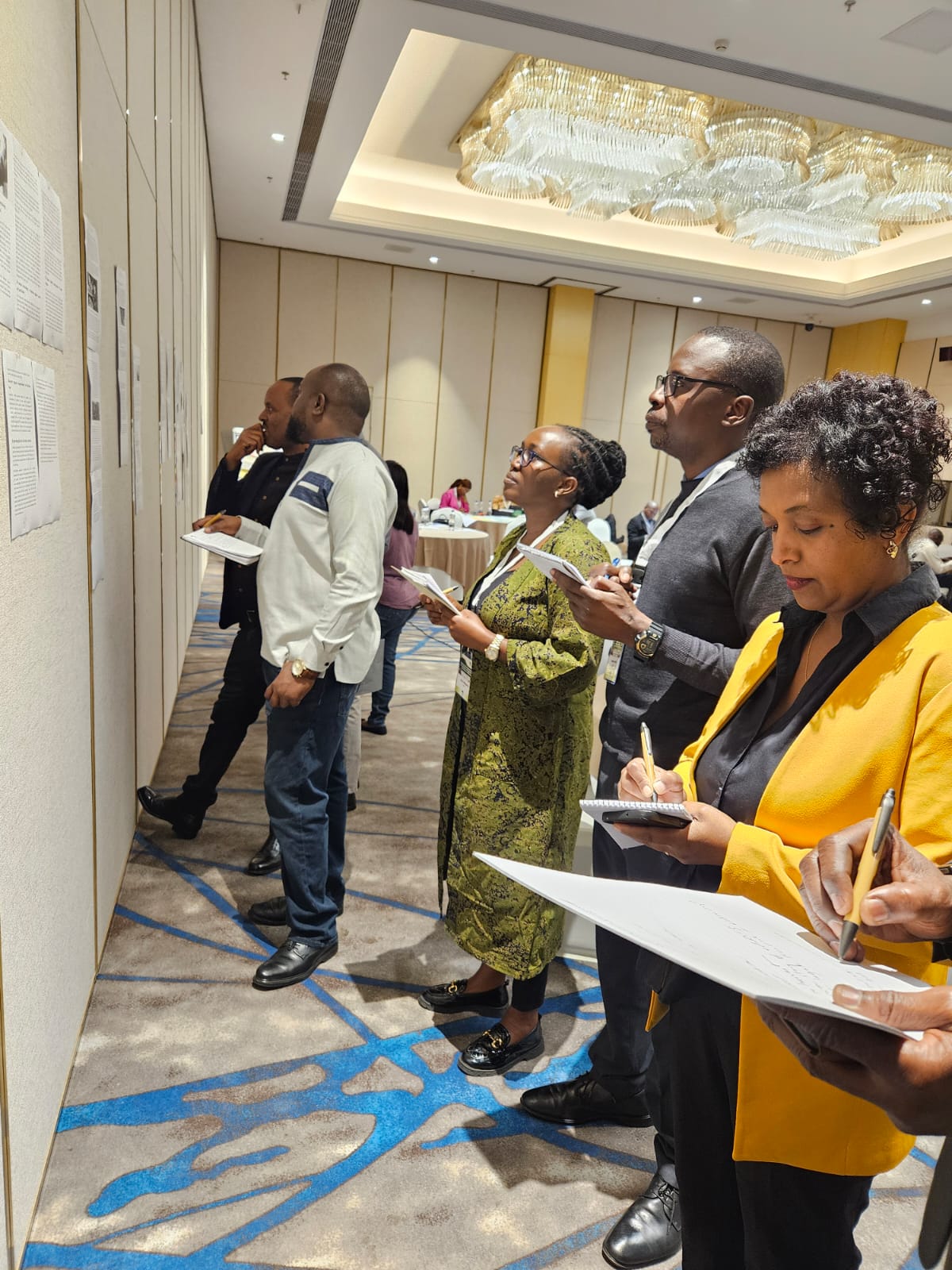
[August 2024] AATF, through the OFAB Project, conducted a training workshop in Addis Ababa, Ethiopia, for 34 participants including 10-chapter coordinators and staff from nine countries: Kenya, Tanzania, Burkina Faso, Malawi, Nigeria, Ghana, Mozambique, Ethiopia, and Rwanda.
The training focused on advanced advocacy, science communication, and impact story generation thereby fostering an enabling environment for agricultural biotechnology in Africa.
Participants also had the opportunity to assess the achievements and impact of OFAB project in all the chapters from 2019 to 2024.
In his welcoming remarks, Dr. Feto Esimo, Director General of the Ethiopian Institute for Agricultural Research (EIAR), acknowledged the collaboration between EIAR and AATF, which began in 2014 with the launch of the OFAB Ethiopia Chapter. He also recognized the contributions and achievements of the OFAB Ethiopia initiatives.

Mr. Vitumbiko Chinoko, OFAB Project Manager, emphasized the importance of aspiring to do things better, faster, and more efficiently, challenging participants to strive for continuous improvement when implementing the project activities. He concluded by encouraging participants to reflect on past successes and look forward to the future with hope.
Dr. Tadessa Daba, OFAB Ethiopia Chapter Coordinator, expressed Ethiopia’s pride in hosting the training and encouraged participants to continue building a community of practice focused on improving the livelihoods of farmers in Sub-Saharan African families and beyond.
Edna Macharia, Programme Officer for OFAB Kenya, noted that the training equipped her with essential skills for crafting compelling impact stories, enhancing her ability to highlight the positive impact of biotechnology in Africa.
Similarly, Abraham Isah, the Project Officer from OFAB Nigeria emphasized the importance of understanding the theory of change in project design, planning, monitoring, and evaluation. He noted that while writing impact stories can be challenging due to the uniqueness of each milestone, following a structured method can lead to success.
Going forward, participants pledged to utilize the skills acquired in developing writing impact stories as a means of communicating research processes and findings to stakeholders, thereby enhancing a better understanding of agricultural biotechnology as envisioned by the project.


















































































